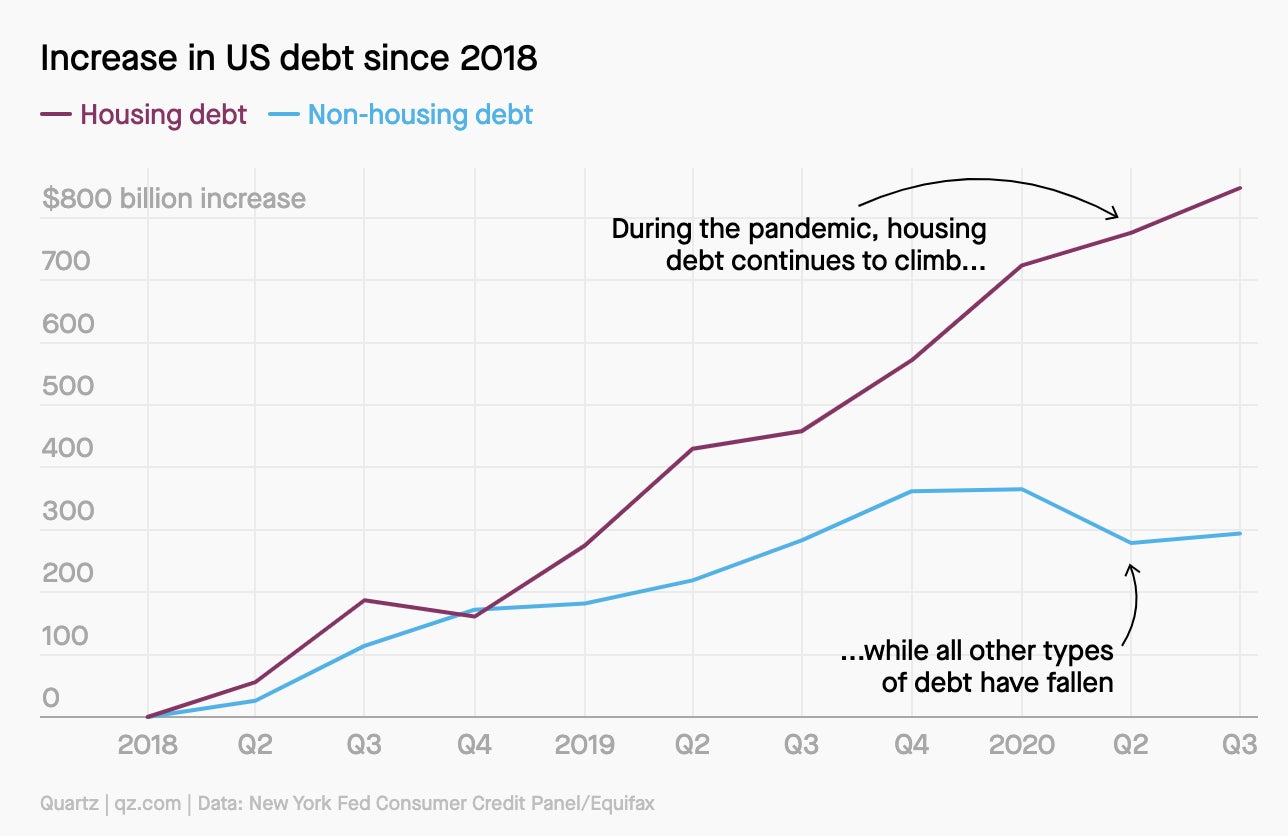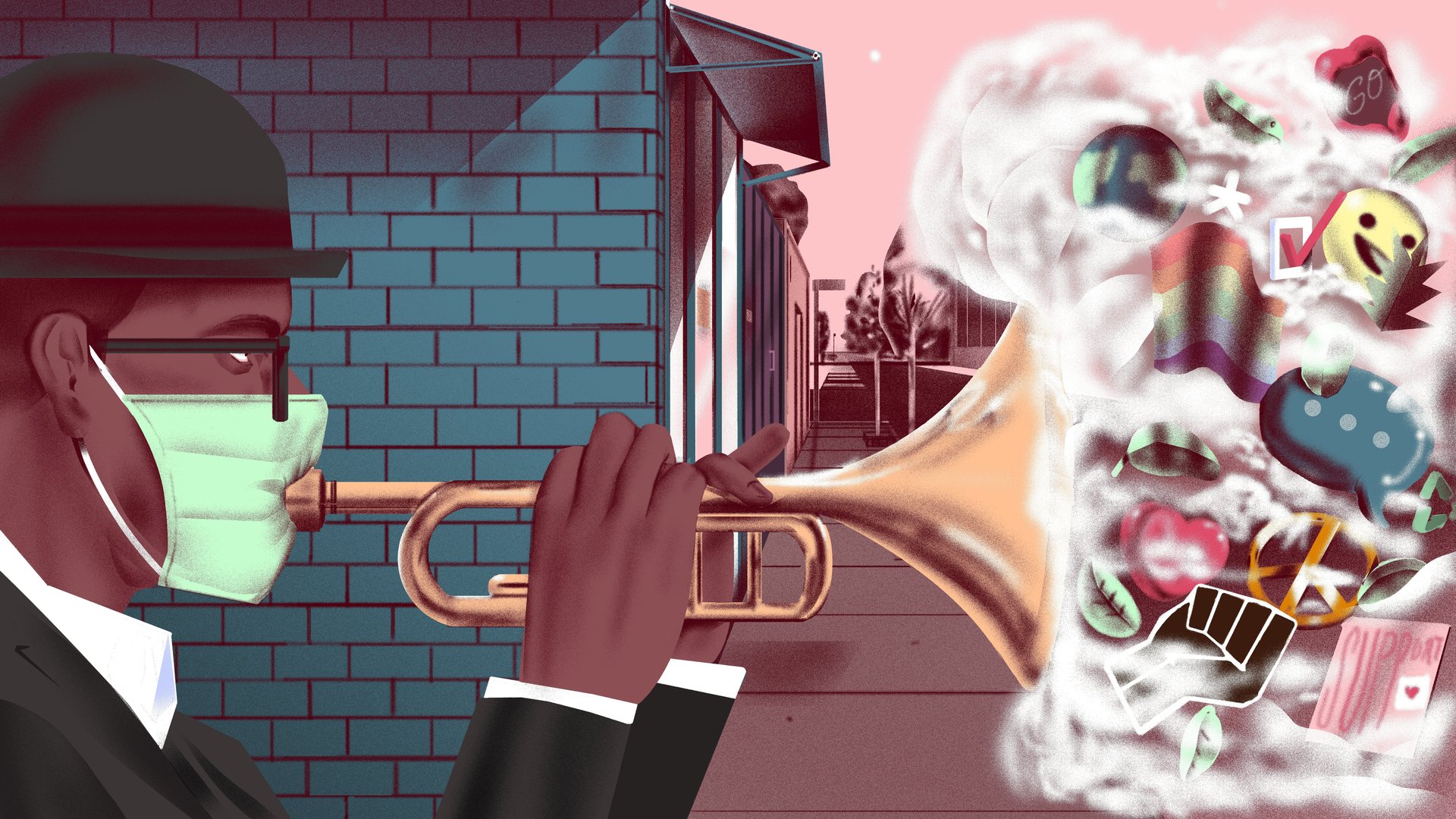Georgia on our minds (again), NBA draft, giant rubber ducks
Good morning, Quartz readers!

Good morning, Quartz readers!
Here’s what you need to know
The result of the presidential election in Georgia is expected today. Voting was so close that it triggered an automatic recount in the US state, with president-elect Joe Biden slightly ahead. Although Donald Trump is also pressing ahead with lawsuits in Wisconsin and Pennsylvania, they’re unlikely to change anything.
The largest school system in the US is shutting down. New York City mayor Bill de Blasio made the announcement last night, five hours later than scheduled, in response to rising coronavirus cases in the city. It affects around 1.1 million students and 1,800 schools, as well as millions of working parents.
The European Union took on Big Tech too late. That’s according to a new report from the EU’s external auditor, which also says the bloc lacks the legal heft to deal efficiently with potential antitrust issues around companies like Facebook and Amazon. Brussels’ current fight with Google, for example, is 10 years old and still in the courts.
The NBA draft took place. In a major televised event with millions of dollars on the table, the Minnesota Timberwolves took the first pick, shooting guard Anthony Edwards, who spent a lone season at the University of Georgia. If you don’t know how the draft works, it’s complicated.
The coronavirus vaccine also-rans
“Even if it’s not the new Viagra, it still can make a considerable amount of money, even if you’re only getting a couple of dollars per dose.” —Christopher Snyder, a professor of economics at Dartmouth College
While Pfizer and Moderna will likely receive government approval first, Snyder—who is a member of Accelerating Health Technologies, a group focused on the financial and economic cases for vaccine development—says there is still money to be made even for the fourth, fifth, or sixth vaccine in line. Annalisa Merelli explains.
The Americans choosing to take on more debt
It’s not because they’re buying more stuff, David Yanofsky reports, but because they are acquiring more space.
National shifts to remote work and learning, plus changes in consumer spending, are reflected in faster growth of housing-related debt than other kinds of credit during the pandemic.

Recent data from the Federal Reserve Bank of New York shows total household debt increased by $87 billion to $14.35 trillion in the third quarter of 2020. The majority of that growth, $84.8 billion, was in mortgage balances after home equity lines of credit balances fell by $13 billion. Auto loans and student loans grew by $26 billion for the same period.
Kings and queens

On New Year’s Eve, 1962, a 13-year-old named Valery Saifudinov took the stage with his band at a party in Latvia’s capital city Riga, then still under Soviet control. In front of a crowd of several hundred factory workers, the group launched into covers of songs by artists such as Chuck Berry and Little Richard—Black Americans who, along with forebears like Sister Rosetta Tharpe, created rock ‘n’ roll. The crowd loved it.
By the time of that performance, rock records had been circulating in the Soviet Union, despite authorities restricting them. They feared what the music represented: It was new, dangerous, and rebellious—in a word, cool. In the years that followed, rock music would become so popular debates persist over whether it stoked dissent that helped destabilize the Soviet regime.
Culture is one of America’s most powerful means of exerting its influence in the world, and in ways large and small, Black Americans have shaped that culture. They’ve held an outsized sway on what the US, and consequently much of the globe, deems cool. Read more from Marc Bain in our latest field guide to the new meaning of cool.
✦ It may not be as cool as Chuck Berry, but a Quartz membership will always give you the global perspective. Try a seven-day free trial.
We’re obsessed with QR codes
It’s finally hip to be square. After a decade of mockery in the West, QR codes—those little black-and-white square patterns you scan with your phone to pull up a website—are finally having their moment in the pandemic. They’re replacing restaurant menus, enabling contactless payments, and even providing proof that the bearer doesn’t have Covid-19. Of course, these developments aren’t so novel in places like China, where QR codes are a ubiquitous tool for digital payments. Scan the history with the Quartz Weekly Obsession.
Get the Quartz Weekly Obsession delivered to your inbox by signing up below.
Surprising discoveries
Giant yellow rubber duckies are protest tools in Thailand. Protesters used them as shields against tear gas.
New York City’s famous Christmas tree looks a bit patchy this year. The spruce newly installed at Rockefeller Center drew critiques on social media—but its owl stowaway was a hit.
Delta found a creative loophole for avoiding US tariffs. The airliner flies its new Airbus planes to cities like Amsterdam and Tokyo before they head stateside.
Madagascar is slowly breaking up into smaller islands. A new study found the East African Rift system extends as far as the island nation.
Computer mouse-slash-phone. It really did exist.
Our best wishes for a productive day. Please send any news, comments, animals hiding in Christmas trees, and drifting islands to [email protected]. Get the most out of Quartz by downloading our iOS app and becoming a member. Today’s Daily Brief was brought to you by Hasit Shah, Liz Webber, and Ana Campoy.